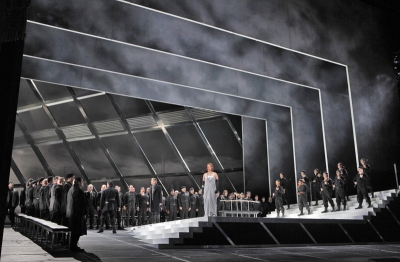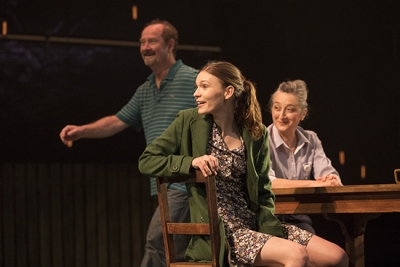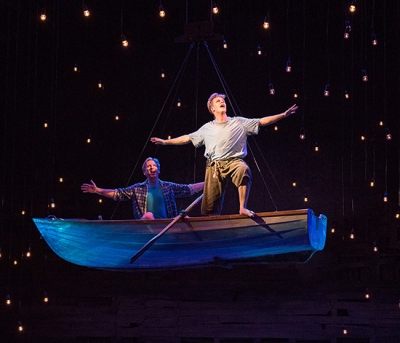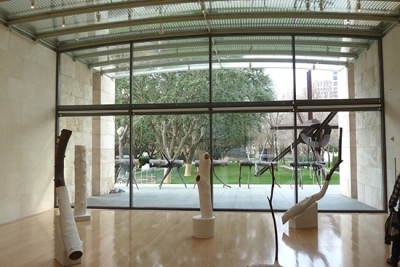Recent reviews
Film | Theatre | Art | Opera | Music | Television | Festivals
Welcome to ABR Arts, home to some of Australia's best arts journalism. We review film, theatre, opera, music, television, art exhibitions – and more. To read ABR Arts articles in full, subscribe to ABR or take out an ABR Arts subscription. Both packages give full access to our arts reviews the moment they are published online and to our extensive arts archive.
Meanwhile, the ABR Arts e-newsletter, published every second Tuesday, will keep you up-to-date as to our recent arts reviews.
Recent reviews
Melbourne Recital Centre, Eurovision in Oz, The Denis Joachim Collection, Australia Council National Indigenous Arts Awards, STC loses its artistic director, and the Melbourne Prize for Music ...
... (read more)At any time, Washington, DC would be an apposite place in which to stage Wagner's vast cautionary saga about the devastating effects of greed and lust for power on the human and natural world, but it is excruciatingly so at this moment. On Pennsylvania Avenue, roughly halfway between the ...
... (read more)Scorsese, currently showing at the Australian Centre for the Moving Image in Melbourne, is not exactly the exhibition that is advertised, and that is a very good thing. Martin Scorsese's career has stretched over half a century and involves nearly sixty films. Yet anyone who has seen advance press ...
... (read more)Stephen Sondheim's Follies opened on Broadway in 1971, during his most fertile period as a composer and lyricist; it premièred one year after Company and two years before A Little Night Music. It echoed the plotless structure of the former and the ambivalent nostalgia of the latter ...
... (read more)My Fair Lady, Des Cowley on the Melbourne International Jazz Festival, Feminist Writers' Festival, Scorsese giveaway.
... (read more)Things I Know To Be True (State Theatre Company of South Australia and Frantic Assembly) ★★★★
At least as far back as 2002, playwright Andrew Bovell was advocating for more diversity on Australia's main stages: 'I see the same actors,' he told Hilary Glow in an interview for her book Power Plays (2007), '[and] they are invariably white and Anglo-Saxon, and I am not satisfied with that as ...
... (read more)If any contemporary Australian novel can be said to be canonical, or perhaps even 'the great Australian novel', then it must be Tim Winton's Cloudstreet. Published in 1991, it soon acquired a devoted following and elevated Winton into the top rank of Australian writers ...
... (read more)Los Angeles – city of freeways, studios, hotels, and endless sunshine – is also home to some great art collections and notable architecture, the latter spanning much of the twentieth century. Several of the art museums, taking advantage of the climate, are built as a series of separate pavilions ...
... (read more)Patricia Cornelius has a passion for putting unlovely characters on stage. It has almost become an end in itself. Here she chooses, as her anti-social subjects, three violent, foul-mouthed women, all from broken families or foster homes, all victims of sexual and physical abuse, all bruised down ...
... (read more)Melbourne's long Indian summer coincided with Opera Australia's 2016 autumn season. It began with a revival of La Bohème and the new production of The Pearlfishers (first seen in Sydney earlier this year). The much-anticipated Luisa Miller with Nicole Car will follow next week ...
... (read more)









